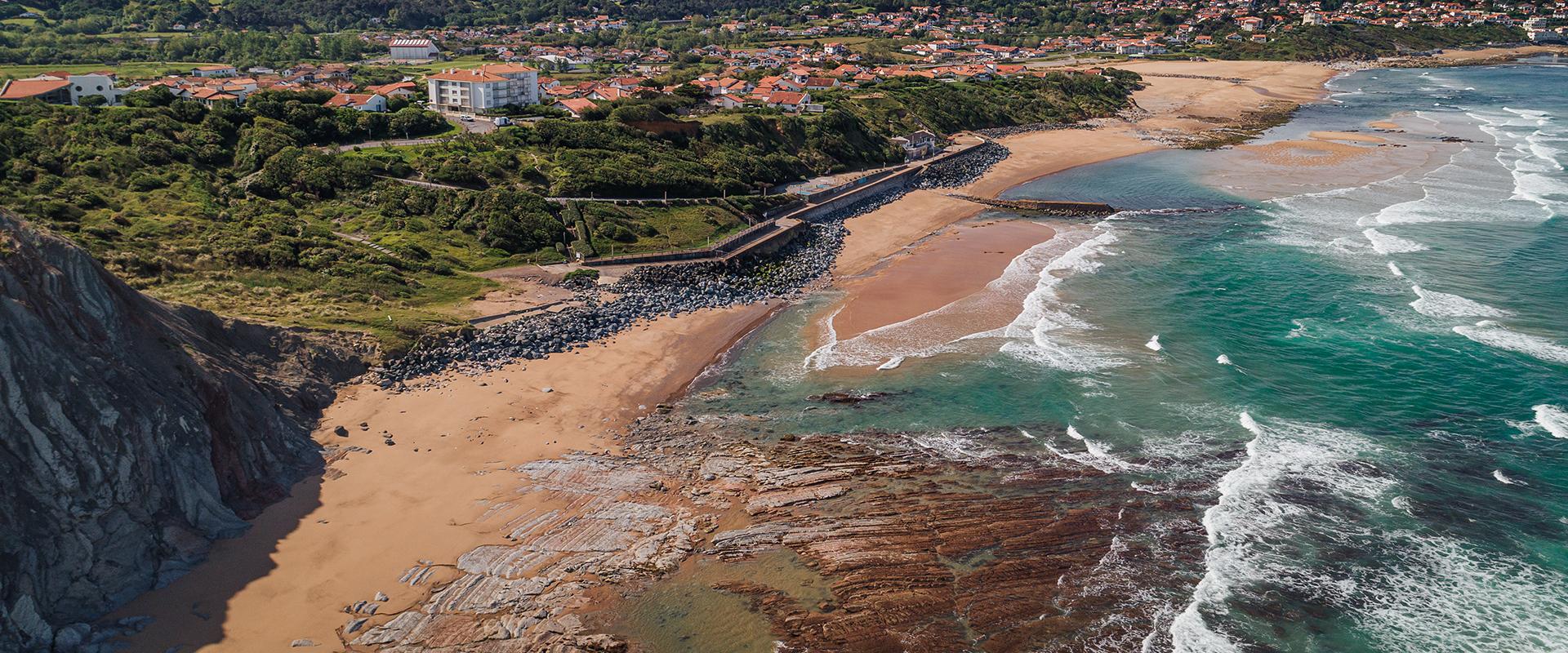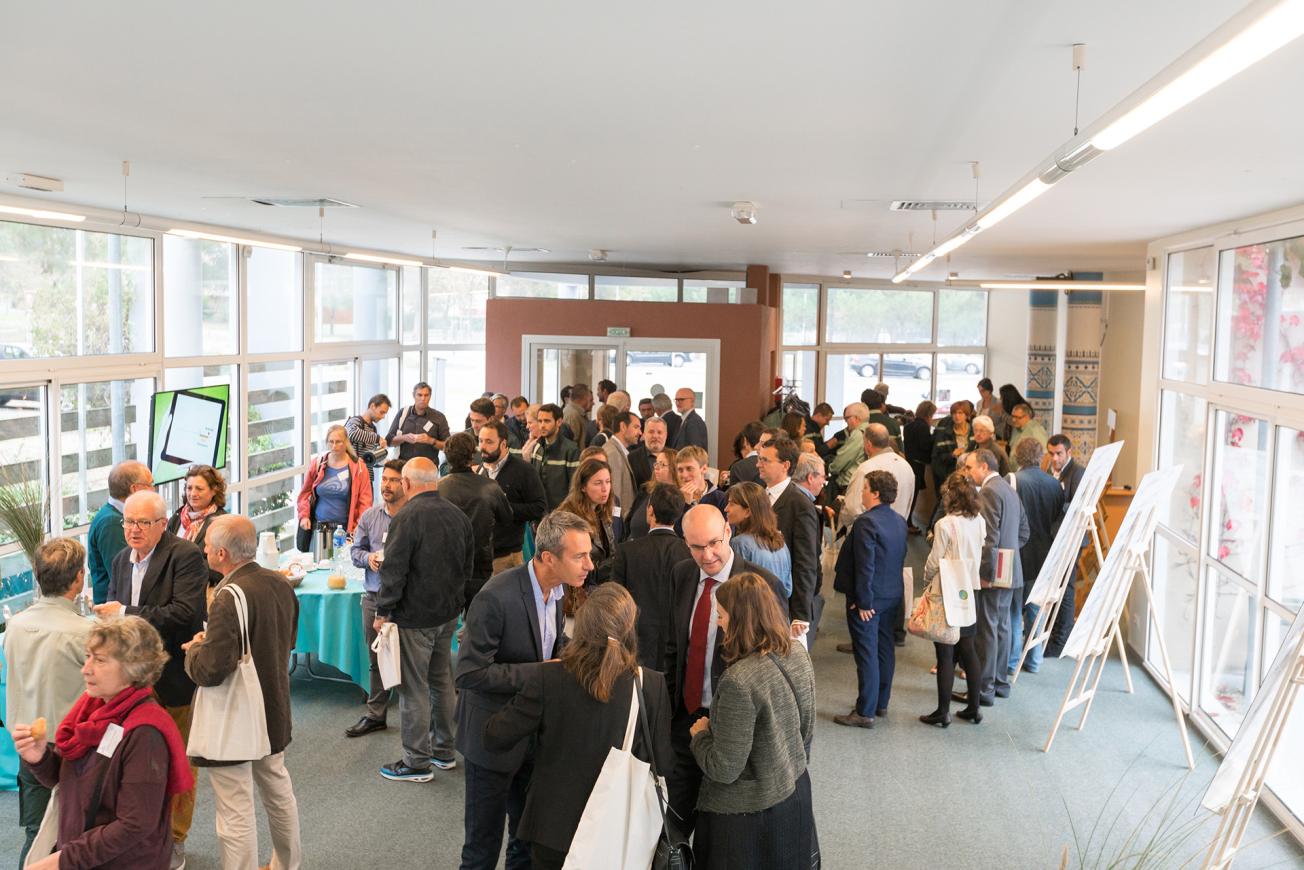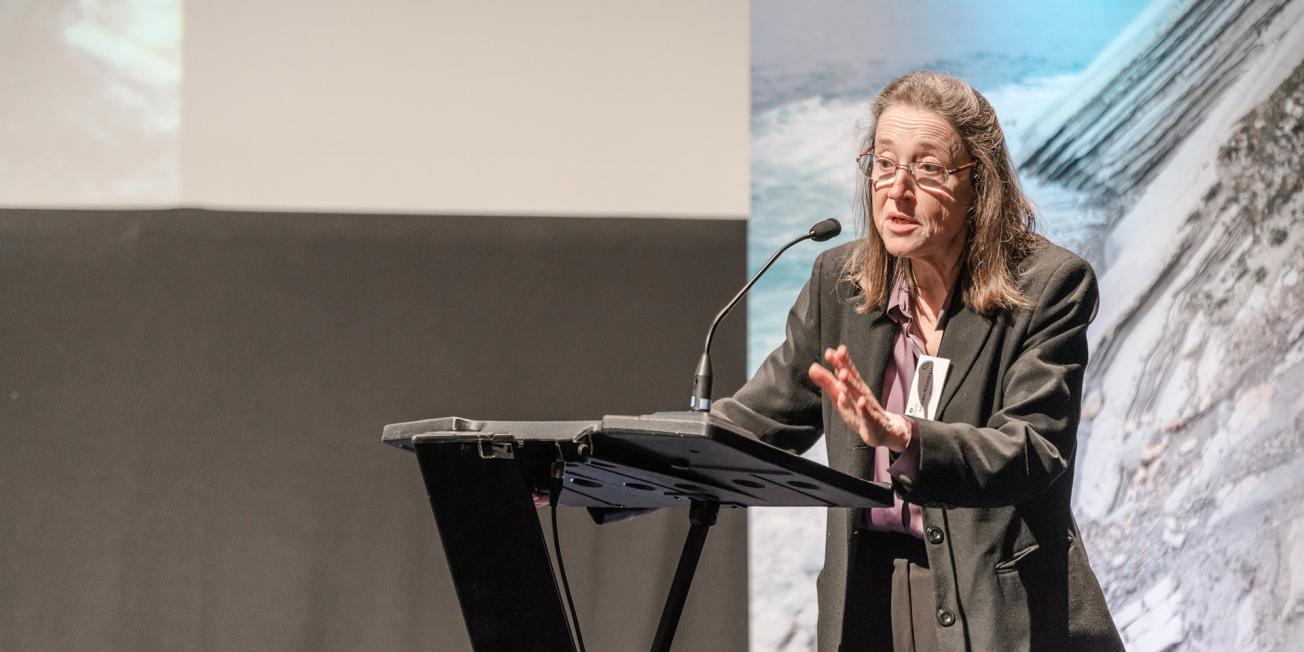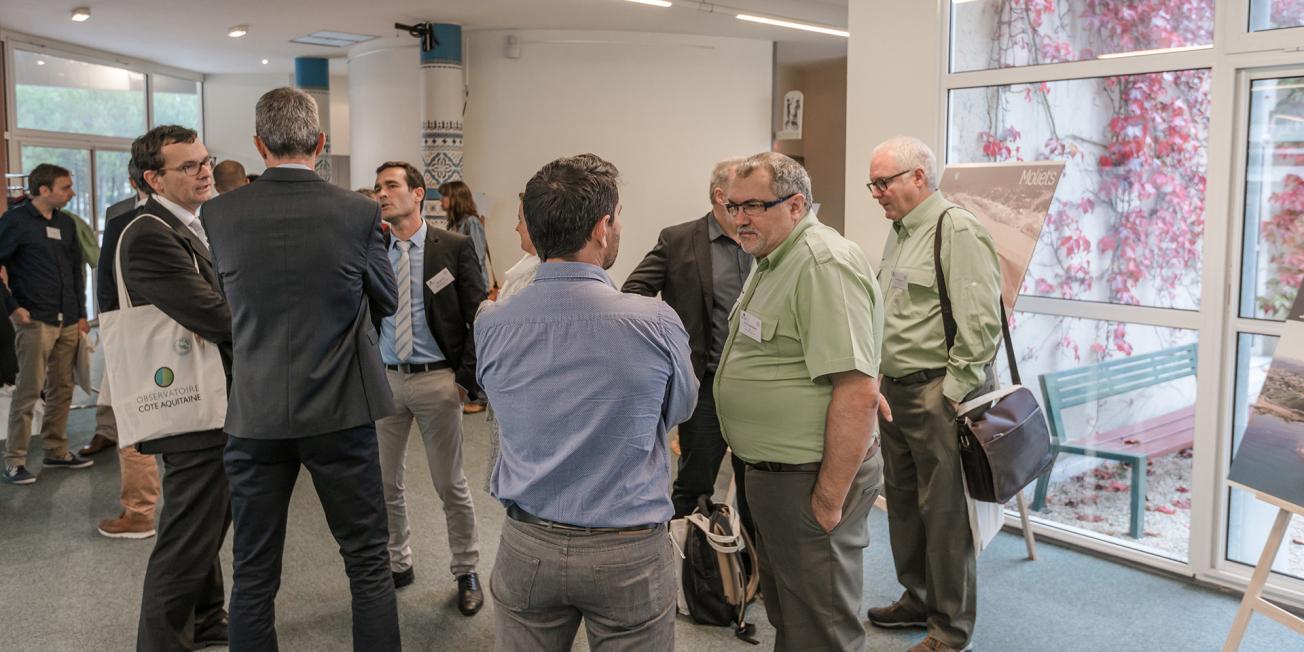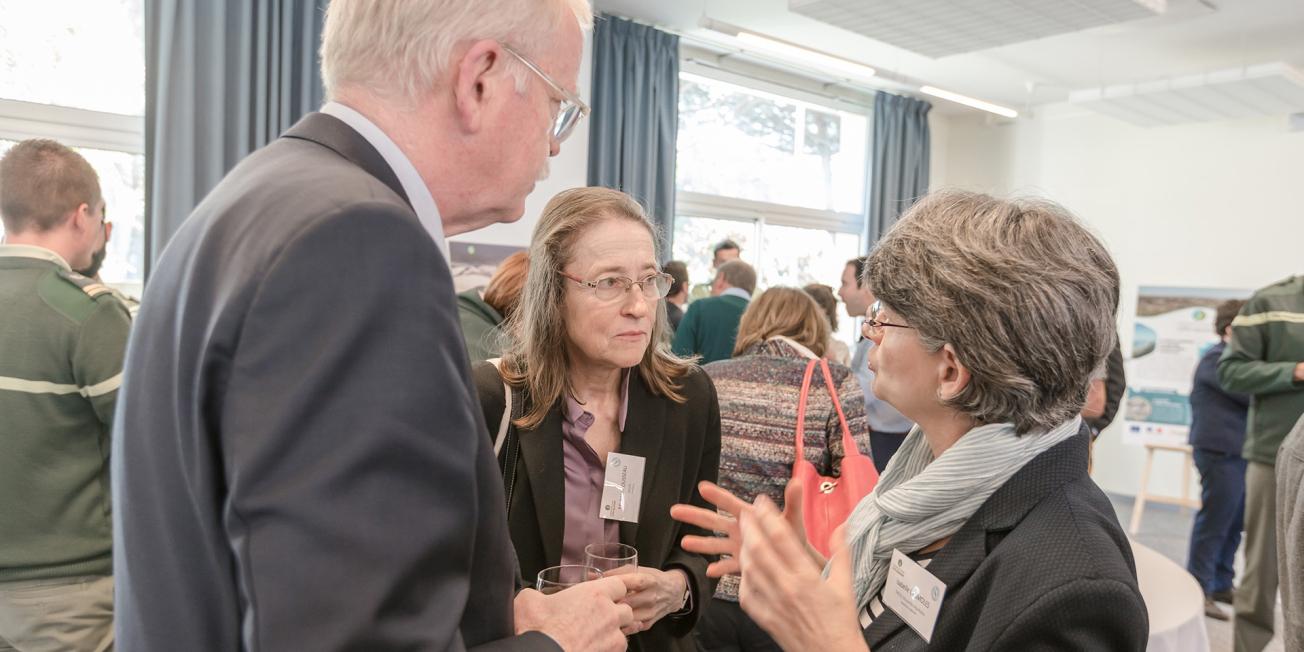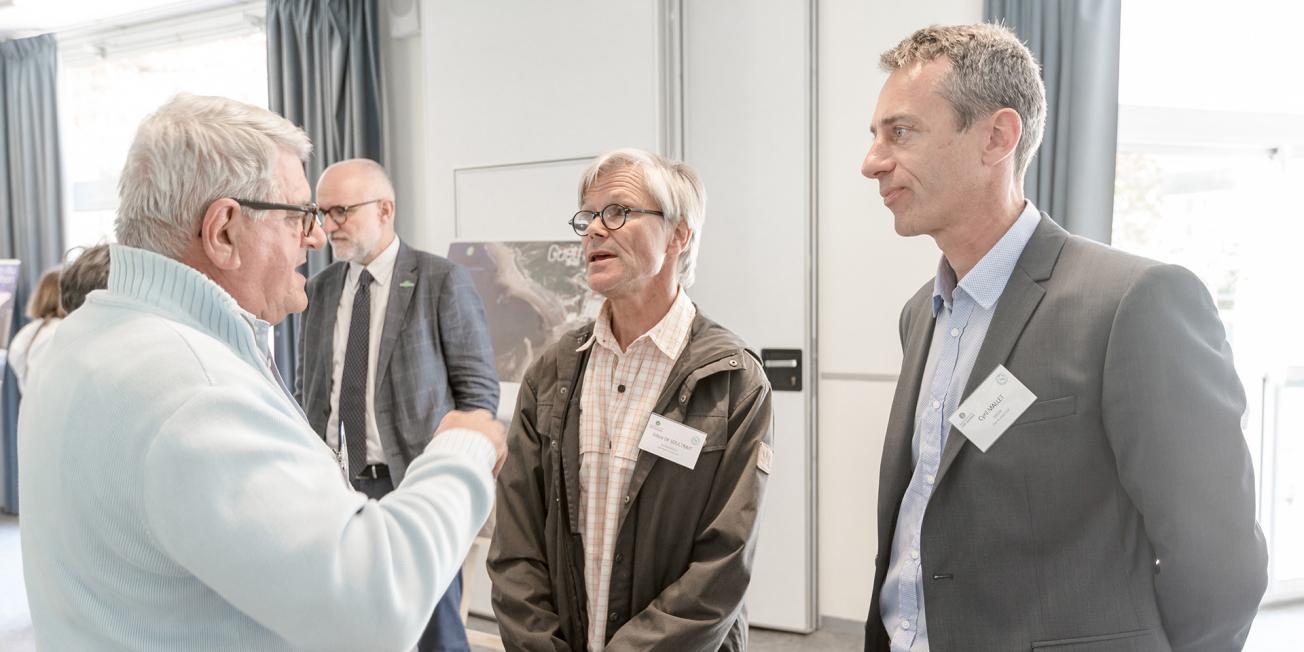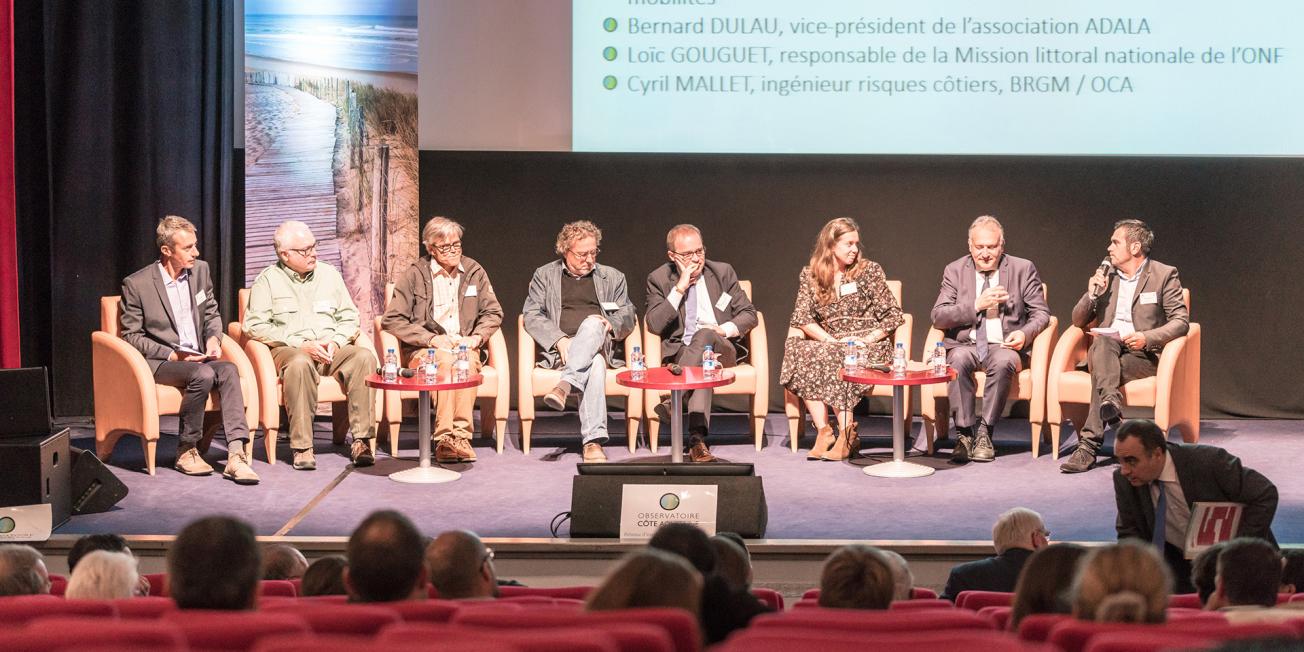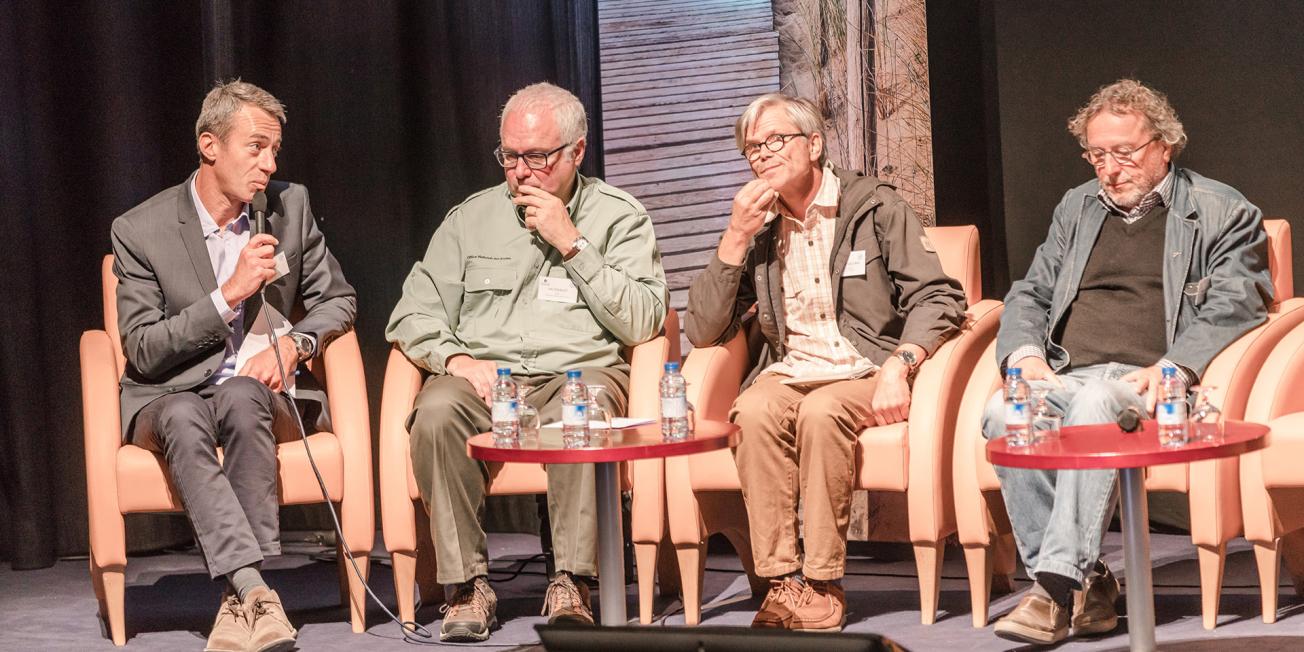About a hundred people, partners and coastal managers, came to Moliets on 12 October 2017 for the 20th anniversary of the OCA.
This event was an opportunity to recall the scientific progress made to deal with coastal risks and the strategies adopted, the need for regular monitoring and the scientific expertise of the OCA with regard to the Aquitaine coastline, particularly for managing the attendant risks, as well as the need to disseminate knowledge of coastal risks in order to promote a culture of risk assessment and environmental awareness.
The six highlights of the day were:
- the official speeches and assessment of the Observatory’s first 20 years,
- a look back at the Observatory’s first 20 years, with Gibus de Soultrait,
- discussions with scientific partners,
- Round Table: “From observation to action: how best to organise for sustainable coastal management?”
- testimony from the Observatory's pioneers,
- buffet lunch.
20th anniversary of the Aquitaine Coastal Observatory
A day of sharing and testimonials
Aline Marchand, Mayor of Moliets-et-Maâ, opened the event and welcomed those present before handing over to Jean-Yves Caullet, Chairman of the Board of Directors of the National French Forests Office (ONF) and then to Michèle Rousseau, Chair of BRGM.
The two heads of the OCA’s technical support structures recalled the importance of such a tool for coastal managers, the need to observe the environment in order to understand it and acquire knowledge, and the exemplary nature of the OCA partnership, recognised throughout France.
Xavier Fortinon, President of the Landes département and of the Mimizan Community of Communes, was also one of the official speakers. The Landes département is one of the Observatory’s most long-standing partners, along with the Nouvelle-Aquitaine Region, a forerunner of the OCA.
Vital Baude, the Regional Councillor responsible for the coastline for the Nouvelle-Aquitaine Region, recalled the importance of having reliable knowledge for any decisions concerning coastal management. The Sub-Prefect of Dax, Lucien Giudicelli, representing the French government, a forerunner along with the Region, gave the closing speech.
Francis Maugard (ONF) and Cyril Mallet (BRGM) lreviewed the achievements of the 20 years of OCA’s activities, before handing over to Gibus de Soultrait, a Guest of Honour and keynote speaker for this event.
The event was an opportunity to recall the need for regular surveillance and to bring together seven people from different backgrounds for a Round Table discussion on the theme “From observation to action: how best to organise for sustainable coastal management?”.
The discussions involving the audience focused on essential subjects such as the government's Bill on the adaptation of coastal territories to climate change, which may soon be back on the agenda of the National Assembly, the example of local management strategies for the coastal strips, as at Capbreton and Lacanau, or the importance of informing the general public and of knowledge for risk management and mitigation.
To find out more
BRGM's missions within the OCA
BRGM has been providing technical support for the Aquitaine Coastal Observatory since its creation in 1996, carrying out various missions such as:
- monitoring the geomorphological evolution of the coastline (Differential GPS, satellite images, LiDAR, aerial photographs, photogrammetry, etc.);
- understanding the sediment dynamics on the Aquitaine coast (movement of sedimentary stocks, exchanges between compartments of a sedimentary cell, etc.);
- prediction of coastline retreat based on the data collected and knowledge acquired: shoreline projection to 2050, impacts related to climate change and extreme events (storms), etc.;
- expert appraisals and recommendations for communities that request them (post-storm missions, planning, monitoring of local coastal management strategies, etc.);
- running the Observatory's resource centre (organisation, archiving and dissemination of data);
- promoting the Observatory's work through communication initiatives aimed at managers and the general public (website, conferences, communication media, etc.).

